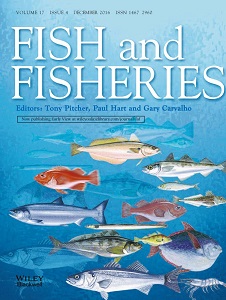
| Tipo de publicación | Articulo |
|---|---|
| Año de publicación | 2016 |
| Autor(es) | Vazquez, I. |
Fisheries management and sustainability assessment of fisheries more generally have recently expanded their scope from single-species stock assessment to ecosystem-based approaches, aiming to incorporate economic, social and local environmental impacts, while still excluding global-scale environmental impacts. In parallel, Life Cycle Assessment (LCA) has emerged as a widely used and recommended framework to assess environmental impacts of products, including global-scale impacts. For over a decade, LCA has been applied to seafood supply chains, leading to new insights into the environmental impact of seafood products.
We present insights from seafood LCA research with particular focus on evaluating fisheries management, which strongly influences the environmental impact of seafood products. Further, we suggest tangible ways in which LCA could be taken up in management. By identifying trade-offs, LCA can be a useful decision support tool and avoids problem shifting from one concern (or activity) to another. The integrated, product-based and quantitative perspective brought by LCA could complement existing tools. One example is to follow up fuel use of fishing, as the production and combustion of fuel used dominates overall results for various types of environmental impacts of seafood products, and is also often linked to biological impacts of fishing. Reducing the fuel use of fisheries is therefore effective to reduce overall impacts. Allocating fishing rights based on environmental performance could likewise facilitate the transition to low-impact fisheries. Taking these steps in an open dialogue between fishers, managers, industry, NGOs and consumers would enable more targeted progress towards sustainable fisheries.